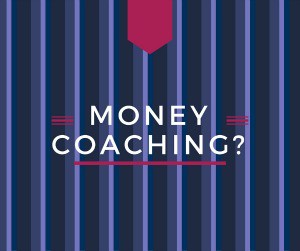 By Candace Brinkley-Badgett, published by Credit.com
By Candace Brinkley-Badgett, published by Credit.com
I was thrilled to be interviewed by credit .com on what money coaching is- and when it makes sense for people and when it doesn’t. As this article states, getting down to the emotions that surround money is one thing that differentiates this coaching from other forms of financial guidance. The author really captured what this coaching can cover and how to find a good fit. The only thing I would change is that it says that I work primarily with professional women in Seattle—and I actually have amazing clients all over the world. Enjoy this and please pass it on if you know someone who may benefit from money coaching.
When Joni McClain and Tammy Lorraine got engaged in January 2015, money, wedding costs and potential debt, were not things they were thinking about, much less the services of a money coach. They were in love and, like most couples, that took up a huge chunk of their time and brains. The giddy pair, from Austin, Texas, decided on a wedding date about 18 months away so they’d have plenty of time to plan.
But then things happened and money – not just the costs of getting married – became top of mind.
“The possibility of debt, became a real factor when Joni was laid off in July of 2015 and was out of the workforce until January of 2016,” Lorraine said.
“All my spare income that was coming in as a photographer now had to be directed toward living expenses, so it was a wash,” McClain said. “Then Sam [the couple’s dog] got very veterinary-emergency-hospital-sick-in-the-middle-of the-night sick. Making sure he was going to be all right cost us half of what we’d saved for the wedding.”
While the couple has been fortunate to have friends and family contribute their time, talent, money and even the venue for their wedding and reception (thus avoiding a lot more debt than they thought they’d have to take on for the wedding) they realized they might need to look at present and possibly future money stresses. They wanted to get their marriage off on the right financial footing and eventually decided to hire a money coach.
They chose a friend from their church whom they describe as strong and powerful. (Their money coach was unavailable to be interviewed for this article).
“For us, it’s more than just experience or knowledge that a coach will provide,” Lorraine said. “There’s got to be a personal, intuitive, and for us, spiritual element our coach had to have. It’s important to us to work with someone who shares our belief system about what money is and what it represents to us, and our coach is a great match for that.”
The couple’s approach to choosing their coach sounds like it was just right, according to Karen McCall, a financial recovery counselor and founder of the Financial Recovery Institute, which specializes in training money coaches.
“Hooray!” McCall said. “What they’re looking for is somebody who’s speaking to them in terms of their values and can tune in to them with the numbers but also more on that emotional, spiritual basis. If they both feel they’ve found someone that is going to be able to listen to both of them and work in that way, they’ve done themselves a good service.”
It turns out, getting down to those emotions that surround money for a lot of people is what really differentiates money coaching from other forms of financial guidance.
Is a Money Coach Right For You?
Money coaches aren’t for everyone. For example, they’re not necessarily a good choice for people having money issues because of one-off financial occurrences, according to Mikelann Valterra, a money coach in Seattle, Wash. So, if you got into debt because of medical bills or other extenuating circumstances, you may just need a lawyer, accountant or other financial professional to help you resolve the situation, she said.
“I think the perception that’s hopefully changing is that people do what they do around money solely because of lack of skills,” Valterra said. “But if that were true, everyone would go out and read a book on how to handle money better and then no one would have any issues around money. The reality is, money is a very, very emotional topic because it hits on survival issues and self-esteem issues – people are so afraid that if they really look at their money situation they’re going to have to make huge changes in their life.”
So how can the average person tell if they need a money coach?
“The issue isn’t debt, because people get out of debt all the bloody time. Money coaching looks at patterns,” Valterra said. “So, if you have refinanced your house three times, there’s a pattern going on. If you have paid off your credit card debt, but three years later you’ve racked it back up, a money coach would be perfect. If you just got a raise, but you still have nothing in savings, if you’re tired of being stressed around money, tired of feeling guilty about spending…feeling out of control, a money coach is perfect.”
Valterra, who works primarily with executive women around the Seattle area, said coaching addresses more than just money management.
“I deal with both the earning side and the spending side of the equation,” Valterra said. “Are people underselling themselves and are they making enough money and that’s very complex. Part of it’s skills, part of it’s emotional mindset and what we feel like we deserve to have and why we undersell ourselves.”
Amanda Clayman, a financial therapist based in New York City, suggested other good times to consider a money coach are situations where you have goals around money that you haven’t been able to achieve, changes that you haven’t been able to maintain, or you just feel stuck and unhappy.
“One of the benefits that a coach can provide is they give you some feedback about appropriate goal setting,” she said.
Finding the Right Money Coach
It’s important to speak with a few coaches to make sure you feel a connection, Clayman said. “You want to be thinking ‘How engaged do I feel with this person, and do I feel like this person really understands me?…or do I feel like this person is just trying to sell me a package or results, but I don’t really feel heard in this exchange.’”
When beginning your search for a money coach, Clayman advised:
- Know what your goals and objectives are
- Know the kind of working relationship you want (e.g., are group sessions OK or would you prefer one-on-one sessions?)
It’s also good to keep in mind that money coaches are not regulated. They’re not required to have any kind of specific education or licensure, so do your homework and watch for red flags. You want to make sure you find a reputable person to help you. While money coaches aren’t regulated, there are many groups throughout the country that train money coaches and issue certifications.
“Anyone can call themselves a coach,” Clayman said. “So you might want to ask a coach about their training, look at their testimonials or ask if there are other people they’ve worked with that you could talk to about their work.”
Basically, if you find anything unsettling about a money coach, that’s a strong indicator you should look elsewhere, Clayman said.
“Anything that sounds too good to be true probably is,” Valterra said.
Also watch out for coaches for whom you can’t find any referrals, she said, and take a close look at their qualifications.
“Education and training is important, and if they’ve helped people get the results they wanted, that’s huge,” she said. “I’d recommend people look for someone who has done training as a money coach or training as a financial counselor.”
And, as Clayman said, finding a coach who feels like a good fit is key.
“It’s such personal, intimate work, so you want someone who you really like and trust, who you really like the way they communicate,” Valterra said. “It’s pretty all-encompassing, looking at long-term, deep change in terms of thinking and behaviors and feelings around money.”
How Much Should I Pay?
Costs for a money coach vary from region to region and from coach to coach based upon their expertise, level of education and experience, but the typical range is from $50-$250 per hour, which could be too much for some people looking for help with their money habits.
“A common question is ‘I have money problems, how can I afford a money coach?’” Valterra said. “And one answer is that people tend to save more money very quickly in working with a money coach than they’re actually spending on the money coach. Even though that is often true, I’ve still had many cases where I’ve referred someone that my services would be too expensive and might harm them, either to a new coach who’s charging less or sometimes their situation is just not appropriate for a money coach, they just need a quick fix.”
There’s also the option of working with a money coach who lives in another region and may charge less — if you’re comfortable with email, video chats and other electronic means of communicating.
Finding a student money coach who is working on their certification is also an option.
“A very cool thing that very few people know about is that new money coaches do have to work with what we call practice or supervised clients for a reduced fee,” Valterra said. “That’s definitely a win-win for everyone.”
According to McCall, coaches in training can cost between $25 and $50 per hour. She personally supervises the coaching being done by trainees under her guidance. Before she lets students interact with clients for the first time, McCall ensures they are really well grounded in the process, that they are empathetic and understanding, and that she feels clients will be comfortable with them.
How Long Should You Work With a Money Coach?
How long you might need to work with a money coach depends on your specific situation and needs, but Valterra, for example, has clients she’s worked with for many years.
A relationship that can start off with regular sessions can, of course, end once a client achieves his or her goals. Or it can become a lasting relationship that turns into to quarterly or even annual “tune-ups.”
“I keep my clients for years and years and years,” Valterra said. “I’m like the family doctor; they just don’t see me as often as they used to.”
For McClain and Lorraine, the answer to how long they would work with their coach was simple. Kind of.
“Until I can resist buying new patio furniture for our new house?” McClain said, sheepishly.
“Until I embody the principles my coach embodies as well, or I’m out of debt,” Lorraine said
“Yeah, that,” McClain agreed.
Mikelann is a money coach with over 20 years’ experience, helping women escape the money fog, feel more in control of their finances and love their financial life. If you are ready to leave money stress behind and design a life you love, please see www.seattlemoneycoach.com and read about this life changing work. Once there, grab her free eBook on how to stop worrying about money.
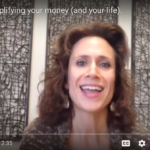
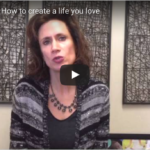

 “If we could sell our experiences for what they cost us we’d be millionaires” – Abigail Van Buren
“If we could sell our experiences for what they cost us we’d be millionaires” – Abigail Van Buren
 Want to know a secret to feeling more peaceful and in control with your money? Simplify your finances. And the best way to do this is to limit the number of accounts you have. Simpler is better.
Want to know a secret to feeling more peaceful and in control with your money? Simplify your finances. And the best way to do this is to limit the number of accounts you have. Simpler is better.


 My favorite definition of consciousness is very simple, yet profound: it is the state of being awake and aware of one’s surroundings.
My favorite definition of consciousness is very simple, yet profound: it is the state of being awake and aware of one’s surroundings.
 By Candace Brinkley-Badgett, published by Credit.com
By Candace Brinkley-Badgett, published by Credit.com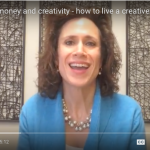

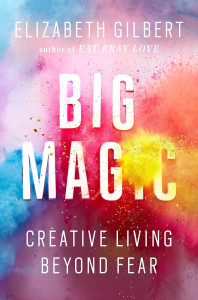 Recently I read Big Magic by Elizabeth Gilbert, author of Eat Pray Love. I gobbled it up like candy. It’s on how to live a creative life- whatever that looks like for YOU—and how to invite in inspiration. And she does not leave money out of the conversation. Personally, I’ve always been frustrated with the “Do what you love and the money will follow” and the “Follow your bliss” school of thought. I think Gilbert would agree. So while her book is not about money, I loved some of her thoughts on it that she wove in. I wrote an op/ed piece on the subject for
Recently I read Big Magic by Elizabeth Gilbert, author of Eat Pray Love. I gobbled it up like candy. It’s on how to live a creative life- whatever that looks like for YOU—and how to invite in inspiration. And she does not leave money out of the conversation. Personally, I’ve always been frustrated with the “Do what you love and the money will follow” and the “Follow your bliss” school of thought. I think Gilbert would agree. So while her book is not about money, I loved some of her thoughts on it that she wove in. I wrote an op/ed piece on the subject for 
 Back in the fall, while on a trip with a girlfriend, I was leafing through a magazine and came across an odd advertisement which said, “Who are you when the pattern changes?”
Back in the fall, while on a trip with a girlfriend, I was leafing through a magazine and came across an odd advertisement which said, “Who are you when the pattern changes?”